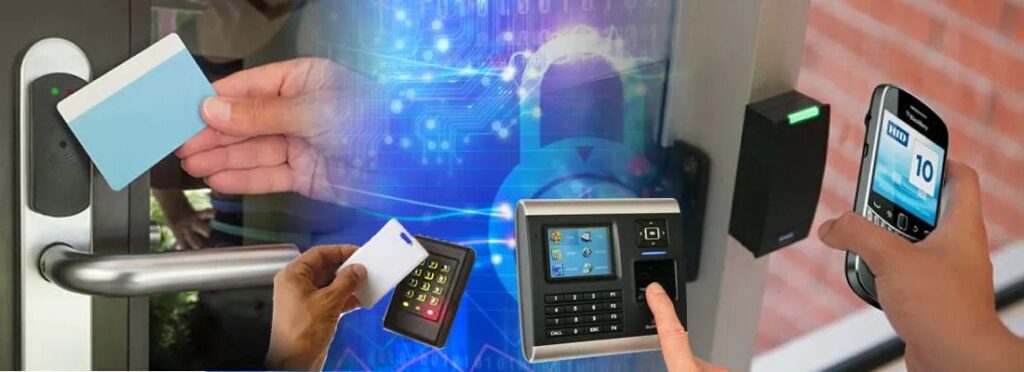Why Biometric Attendance is the Future of Workforce Management
Summary:
Discover how biometric systems eliminate time fraud and improve attendance accuracy across industries. From fingerprint scanning to facial recognition, explore why businesses are adopting this reliable solution.

🟦Integrating CCTV with Attendance Machines: A Smart Security Move
Summary:
Learn how combining CCTV surveillance with attendance tracking helps prevent unauthorized access, enhances employee monitoring, and boosts overall workplace security.

🟦 3. Cloud-Based Attendance: Anytime, Anywhere Access
Summary:
Explore the benefits of using cloud-powered attendance systems for remote monitoring, real-time data synchronization, and efficient payroll processing — ideal for distributed workforces.


🟦 4. RFID vs Biometric Attendance: Which is Better?
In the modern workplace, ensuring accurate attendance tracking and secure access control is crucial. Two of the most popular technologies used for this purpose are RFID (Radio-Frequency Identification) and Biometric Attendance Systems. While both aim to automate and streamline employee time tracking, they differ significantly in terms of technology, security, accuracy, and application.
This article explores the key differences, advantages, and drawbacks of RFID and biometric attendance systems, helping you decide which is better suited for your organization.
🔹 Understanding RFID Attendance Systems
RFID attendance systems use radio waves to identify individuals based on a unique ID encoded in a card or tag. Employees carry RFID cards or badges, which they scan against a reader to log their attendance.
✅ Advantages of RFID Systems:
- Speed: RFID cards are scanned in less than a second, allowing quick access.
- Non-intrusive: No physical contact with the reader is required.
- Affordable: Generally lower initial investment compared to biometric systems.
- Easy Integration: Compatible with most access control and HR systems.
❌ Disadvantages of RFID:
- Buddy Punching: Employees can misuse the system by swiping each other’s cards.
- Lost or Stolen Cards: Security risks increase if cards fall into the wrong hands.
- Maintenance: Cards and readers may wear out or get damaged over time.
🔹 Understanding Biometric Attendance Systems
Biometric attendance systems use unique biological traits such as fingerprints, facial features, iris patterns, or voice to authenticate and record attendance. These systems scan and match the biometric data of the employee with the stored template.
✅ Advantages of Biometric Systems:
- High Security: Prevents buddy punching and proxy attendance completely.
- No Cards Required: Employees don’t need to carry anything — their identity is their key.
- Accurate Tracking: Biometric systems are highly accurate with a very low error rate.
- Durable: Less wear-and-tear compared to physical cards or badges.
❌ Disadvantages of Biometric:
- Higher Cost: Initial setup is costlier due to advanced hardware and software.
- Privacy Concerns: Some employees may be hesitant to share biometric data.
- Environment Sensitive: Fingerprint scanners may be affected by dirt, moisture, or cuts on the fingers.
🔍 Comparison Table
| Feature | RFID Attendance | Biometric Attendance |
|---|---|---|
| Security | Moderate | High |
| Speed | Very Fast | Fast |
| Accuracy | Moderate | Very High |
| Cost | Lower | Higher |
| Risk of Proxy Attendance | Yes | No |
| Maintenance | Medium (card loss) | Low |
| Contactless Option | Yes (RFID/NFC) | Yes (Face/Iris) |
✅ Which Is Better?
The choice between RFID and biometric attendance systems largely depends on your organization’s specific needs.
- Use RFID if you’re managing a small business, want quick check-ins, and are looking for an affordable, non-intrusive solution with moderate security.
- Use Biometric if you require maximum accuracy, want to eliminate attendance fraud, and are ready to invest in a long-term, secure, and scalable solution.
In sectors like manufacturing, healthcare, government, and corporate offices, biometric systems are gaining more popularity due to their reliability and fraud-proof nature. Meanwhile, RFID still remains relevant in educational institutions, event access, or low-security environments.
📝 Final Thoughts
Both RFID and biometric attendance systems serve a vital role in improving time management and workforce accountability. At Savtech, we offer customized solutions in both technologies — whether you’re looking for a low-cost RFID setup or an advanced biometric system integrated with payroll and access control.
Need help choosing the right system for your organization? Contact us today for a free consultation and demo.
Read More Link:


2 responses to “Blogs Details”
good
a2u99v